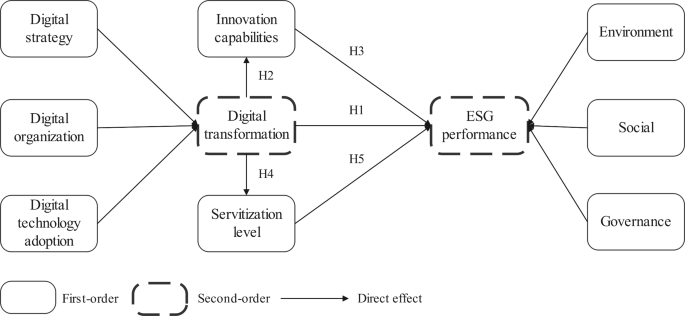In today’s rapidly evolving business landscape, digital transformation has emerged as a critical imperative for companies seeking to maintain competitiveness and ensure long-term viability. This is particularly crucial for Small and Medium-sized Enterprises (SMEs), which play a vital role in many economies. A new study has uncovered how SMEs can leverage digital transformation to boost their Environmental, Social, and Governance (ESG) performance, ultimately driving sustainable development.

Unlocking the Power of Digital Transformation
The study, conducted by researchers Donghua Chen and Shaofeng Wang, reveals that digital transformation can significantly impact each dimension of ESG performance. By harnessing technologies such as the Internet of Things (IoT) and data analytics, SMEs can effectively track and control environmental metrics, reduce energy usage, and minimize waste and pollutants, leading to enhanced environmental performance.
Boosting Innovation and Servitization
The researchers also found that digital transformation enhances a company’s innovation capabilities and servitization level, which in turn positively influence ESG performance. Digital transformation provides SMEs with advanced technologies, data analytics, and collaborative platforms, facilitating innovation by enabling more agile responses to market changes. Furthermore, digital transformation empowers SMEs to elevate their servitization level, integrating products and services to emphasize value co-creation with customers.

Fig. 2
Uncovering Pathways to High ESG Performance
The study employed a combination of statistical techniques, including PLS-SEM and fsQCA, to uncover the complex relationships between digital transformation, innovation capabilities, servitization level, and ESG performance. The researchers identified three distinct configurations of digital transformation components that can lead to high ESG performance, providing nuanced pathways for SMEs to achieve sustainable development.
Implications for SMEs and Policymakers
The findings of this study offer valuable insights for SME managers and policymakers alike. SMEs can now make informed decisions about allocating their scarce resources towards digital initiatives that yield sustainable benefits. Policymakers, on the other hand, can formulate relevant policies and regulations to promote the improvement of innovation capabilities and servitization levels, ultimately driving the digital transformation and ESG performance of SMEs.
This study showcases the transformative potential of digital technologies in driving sustainable development, particularly for SMEs. By harnessing the power of digital transformation, SMEs can not only improve their operational efficiency but also make tangible contributions to environmental protection, social responsibility, and corporate governance, ultimately securing their long-term competitiveness and contributing to a more sustainable future.
Author credit: This article is based on research by Donghua Chen, Shaofeng Wang.
For More Related Articles Click Here
